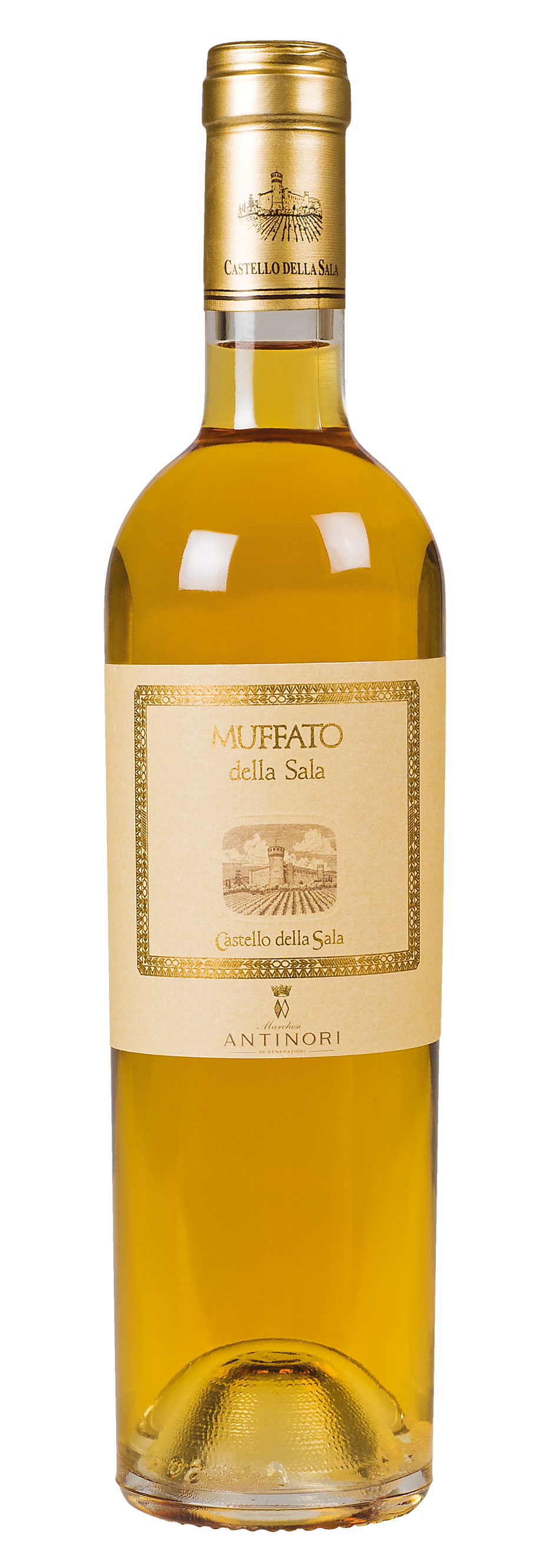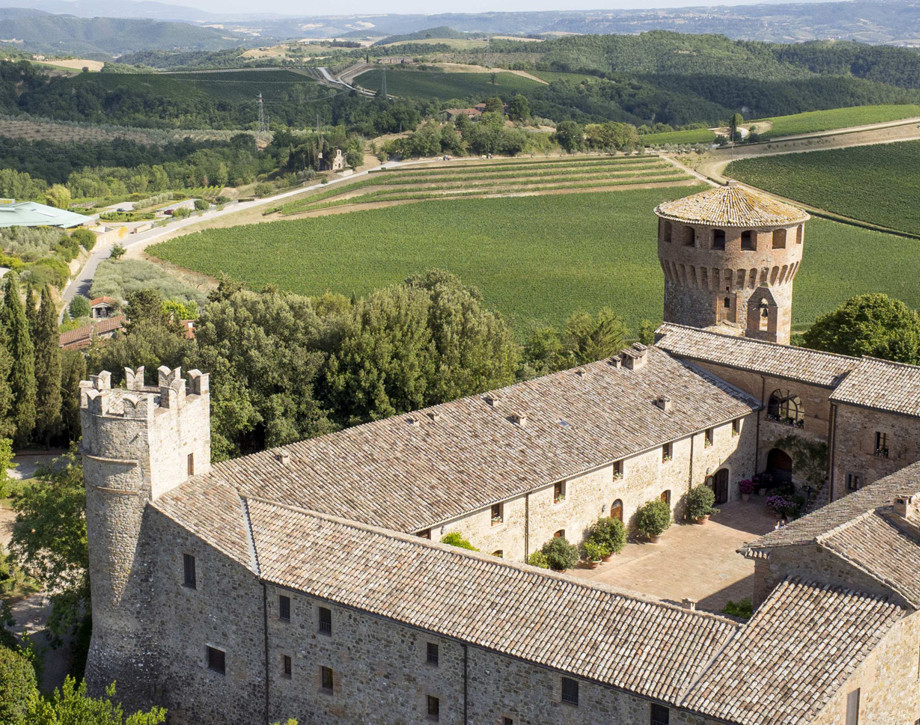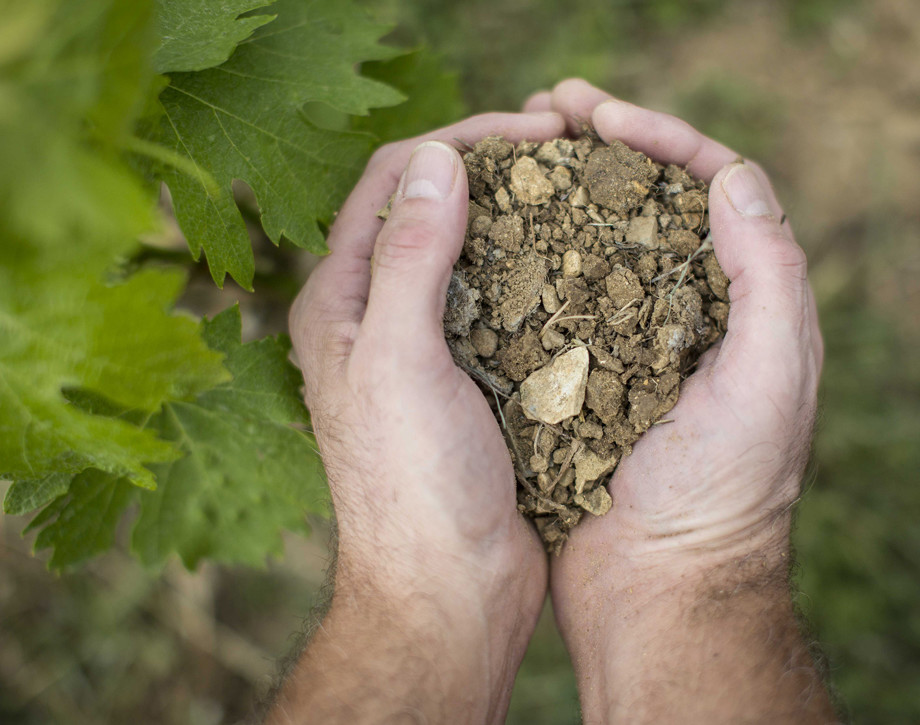Muffato della Sala 2011
The Wine
This fascinating wine is a blend of Sauvignon Blanc, Grechetto, Traminer, Sémillon and Riesling affected by Botrytis Cinerea (noble rot). The morning mists and local microclimate favour the development of this rot which reduces the water content of the grapes. The resulting concentration of sugars and aromas give the Muffato its special and unmistakeable flavour.

The Wine
This fascinating wine is a blend of Sauvignon Blanc, Grechetto, Traminer, Sémillon and Riesling affected by Botrytis Cinerea (noble rot). The morning mists and local microclimate favour the development of this rot which reduces the water content of the grapes. The resulting concentration of sugars and aromas give the Muffato its special and unmistakeable flavour.

Climate
The 2022 growing season in Orvieto began with warmer temperatures and dry conditions during both winter and spring. The month of June saw no precipitation and registered several heat spikes. Despite these climatic conditions, the vines did not suffer drought stress due to existing pedoclimatic conditions in Castello della Sala’s vineyards. Rain showers at the beginning of August brought good balance back to both the vines and the fruit allowing the grapes to reach peak ripeness. Layers of morning fog set into the vineyards during the months of October and November and the berries were gradually covered with “noble rot” that concentrated sugar levels and enhanced the grapes’ aromatic complexity. The grape harvest began at the end of October with Traminer, continued with Riesling, Sauvignon Blanc and Sémillon and was completed at the end of November with Grechetto.
Vinification
Grapes were harvested from Castello della Sala’s vineyards, located at an altitude between 200 and 450 meters above sea level (656 and 1476 feet), in clay-based soils rich in marine fossils. All grapes were hand harvested in progressive stages, returning repeatedly to the vineyards to pick the fruit at just the right time. Once the grapes were brought to the cellar, grape clusters were further selected for quality on sorting tables. Grape clusters with their stems were gently crushed then pressed. The must underwent fermentation for 18 days at a temperature of approximately 17 °C (63 °F). The wine, still sweet at this stage, was transferred into 228-liter oak where it aged for approximately 6 months, then continued to age in stainless steel tanks for an additional period of 2 years.
Historical Data
Muffato della Sala is produced with grapes with “noble rot”, harvested in late October and early November to allow the morning mists to develop of Botrytis Cinerea, or noble rot on the grape berries. This type of mould concentrates the water of the crop, its sugars, and its aromas, endowing the Muffato della Sala with a harmonious and unmistakable fragrance. The first year to be produced was the 1987 and consisted of the blend of varieties such as Sauvignon Blanc (50%); Grechetto (30%) and Drupeggio (20%). The composition of the blend has varied over the years and now has attained its definitive results. Muffato della Sala is a fascinating wine, an expression, in small quantities, of the nature of a unique terroir.
Tasting Notes
Muffato della Sala 2022 is an intense bright golden yellow. The nose presents notes of ripe tropical fruit, in particular pineapples, mangoes, apricots, peaches and citrus zest accompanied by hints of honey, caramel, butter and spicey notes of saffron and ginger. The palate is pleasantly dense, full bodied and defined by excellent balance between sweetness and acidity. The long finish offers notes of honey, jam, dried apricots and candied fruit.

Castello della Sala
Castello della Sala is located in the Umbria region, not far from the Tuscan border, about 18 kilometers from the historic city of Orvieto. The Medieval castle’s property extends over an area of 600 hectares (1482 acres), 229 hectares (495 acres) are planted with vineyards at an altitude that varies between 220 and 470 meters above sea level (722/1541 feet) on the gently rolling hillsides that characterize the beautiful countryside in this area. Castello della Sala is the perfect place for growing white varieties. The vines grow in clay and calcareous based soils, rich in fossil shells, and they are well exposed to the rising of the sun with an excellent difference of temperature between day and night. The one exception to the rule is Pinot Noir, the only red variety that has found in this area ideal growing conditions to best express its full potential.

Soil
Clay soils rich in deposits of marine fossils.


















